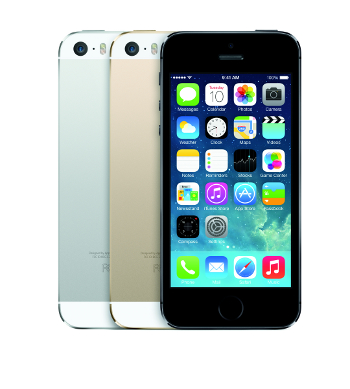 The recent debacle of the FBI asking Apple to build a backdoor to the iPhone is most interesting.
The recent debacle of the FBI asking Apple to build a backdoor to the iPhone is most interesting.
First of all, it highlights Apple’s philosophy that has held it back from being an even more dominant player than it already is in the business companion device space.
For years, Apple did only the absolute basics to allow its iOS devices to be secured and managed in the business environment, mainly centred around its assertion that the device belongs to the user, not the business and thus ensuring that it could not be entirely governed by the likes of MDM.
It has since come more around to the idea that, even in a BYOD situation, the business needs some level of control that would have traditionally been the sole preserve of the user/owner. And iOS has seen ever more adoption in the business market since.
“Why should a law enforcement agency be frustrated in its legitimate investigations by a consumer technology manufacturer who wants to protect its reputation, and not forgetting, market capitalisation?”
Now that philosophy of your device being your own is being challenged on a fundamental level as the FBI for the best possible reasons — the investigation of a hideous and unjustifiable crime — has asked for a mechanism to subvert that sanctity of ownership and privacy, which Apple fears could fall into the wrong hands.
Gregg Keizer of Computerworld has reported that many tech experts think that what the FBI has asked for is technically feasible, despite the protestations of many, including Apple. To be honest, I think the truth is a bit murkier than that.
I firmly believe that there are virtually no consumer devices that are invulnerable to probing and recovery by intelligence agencies. Having talked for years to various security gurus who deal with these agencies on a regular basis, I have no doubt that the likes of the FBI, perhaps with a bit of help from the NSA or CIA, could get whatever they want form the iPhone, or indeed any other smart phone.
No I think the reality in this situation is that the FBI has said to itself simply, why should we?
Why should a law enforcement agency be frustrated in its legitimate investigations by a consumer technology manufacturer who wants to protect its reputation, and not forgetting, market capitalisation?
The crack of the iPhone 5c at the heart of this case would most likely take some effort and resources on the part of law enforcement, but it seems as if somewhere in the process someone has asked, “why are we busting our hump doing this when Apple should be doing it?”
Well why indeed.
Now as we all know, no law enforcement agency, not least the FBI, is perfect and such technology, and the intelligence derived from it, can often be misused, which is what Apple cites as its chief concern in complying with the FBI request.
I doubt that anyone believes that technology vendors do not, in secret, cooperate with governments and law enforcement agencies when it comes to the investigation of such crimes. But when such dealings take place sub rosa, everyone can save face.
It is not as if there is only one way to skin a cat either. Even in the case of the famous email on the Microsoft server in Ireland, the issue is not an outright refusal to hand over such material, it is merely a refusal to respond to the particular method of request in use, as it might set a dangerous precedent. Similarly, Apple fears that this would open the flood gates to other requests, as well as the danger of misuse/loss
It is most likely that this is a gambit on the part of the FBI to force the issue with Apple, who may well have provided such services before, on a one off basis where necessary, that did not receive any public attention.






Subscribers 0
Fans 0
Followers 0
Followers